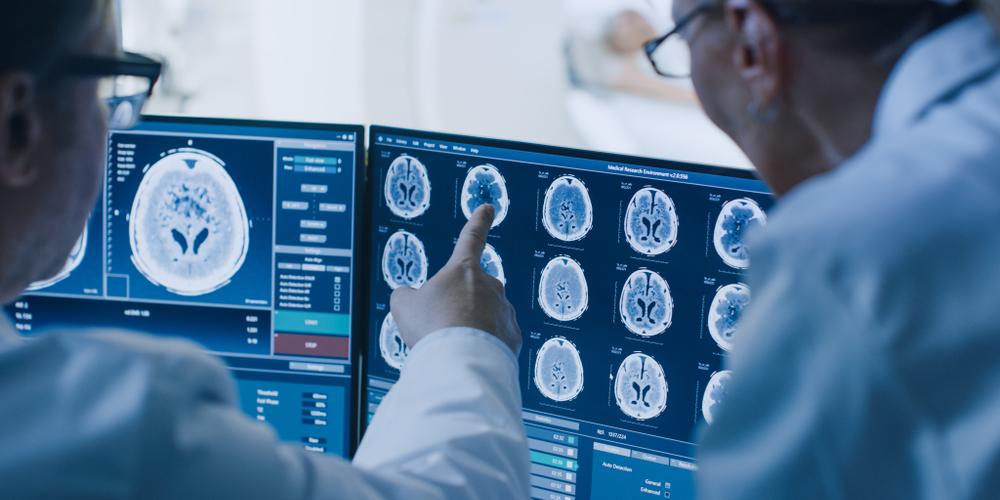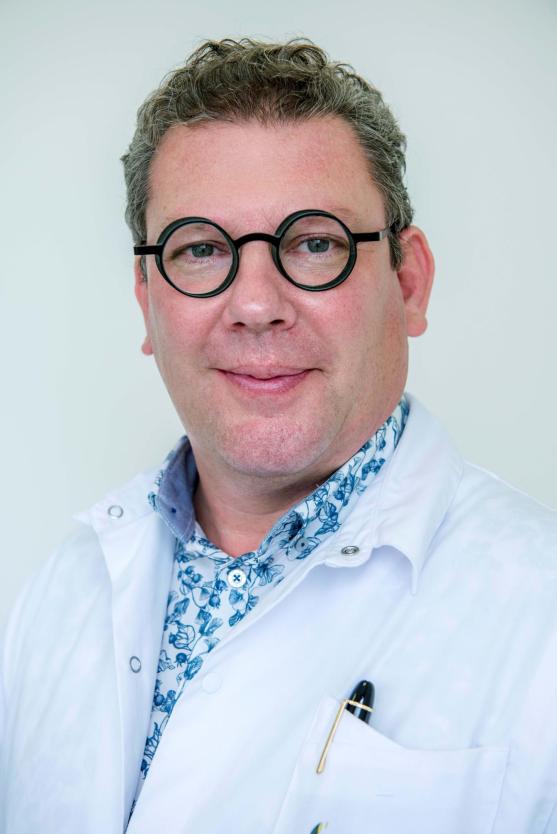
You might have missed it, but 11-17 March was Brain Awareness Week. To mark the occasion, we spoke to VUB professor and head of Neurology at UZ Brussel Sebastiaan Engelborghs about the state of our brains. He’s working on a dossier for De Standaard about how to keep your brain healthy.
How can we reduce the risk of dementia?
Sebastiaan Engelborghs: “An estimated 40% of dementia cases worldwide could be prevented, or at least the symptoms can be delayed by making adjustments to your lifestyle. What’s good for the heart is also good for the brain. The risk factors for heart and vascular disease are also risk factors for dementia. Taking exercise, avoiding obesity, stopping smoking, drinking alcohol in moderation, keeping diabetes under control. We should also keep an eye on our blood pressure and cholesterol and adapt our eating habits. Our Western diet is too high in calories and contains too much saturated fat. The Mediterranean diet, with more unsaturated fats, is much more favourable in reducing the risk of heart and vascular disease and dementia.”
“Hearing impairment is a risk factor; perhaps because you receive less cognitive stimulus”
Can you train your brain and memory?
“Staying cognitively active is very important. People often think that means doing crossword puzzles, but just being active is the best form of stimulation for the brain. For people who work, it’s not a problem, but for pensioners, there’s a risk of social isolation and that’s not good. Hearing impairment is also a risk factor, which can fortunately be corrected with a hearing aid. The link with the risk of dementia is likely due to the fact that you receive less cognitive stimulus if you’re hard of hearing.”
Are there other reasons for memory problems?
“Absolutely. When someone presents at a consultation with memory problems, we also look for causes other than brain disease. Deficiencies in certain vitamins, delayed thyroid function or depression can cause memory problems. Obstructive sleep apnoea is also an often misunderstood cause. So not every memory issue points to underlying brain disease that could lead to dementia. Memory complaints can also be age-related. As we age, our cognitive functions change: paying and dividing attention in particular become more difficult, while you actually need attention to store new cognitive information in your memory.
“With age, retrieving information from your permanent memory also becomes more difficult. We’ve all had that frustration: you try to remember someone’s name, but you just can’t. It’s on the tip of your tongue. A few hours later, when you’re thinking about something else, it suddenly comes to you. That’s a totally different mechanism of ‘forgetting’ than the forgetting that happens with Alzheimer’s. Then the information is simply no longer imprinted in the permanent memory and so it can’t be retrieved later.”

Sebastiaan Engelborghs
So what are the causes of memory problems in brain disease?
“The most common is Alzheimer’s. 70% of all dementia cases in this region are caused by it. But there are other brain diseases too. Vascular dementia, for example: small or large infarcts in the brain can lead to dementia. There is also frontotemporal dementia, which often presents in younger patients. Or dementia with Lewy bodies, a brain disease whose symptoms are between those of Alzheimer’s and Parkinson’s.”
Can you count gestational dementia among these?
“I find the term ‘dementia’ a very heavy term in that context. It’s true that pregnancy can be temporarily linked with limited cognitive function: being a little less attentive, more forgetful than previously. But it is temporary and reversible. It’s likely to do with hormonal changes or could be due to issues related to pregnancy. If you sleep badly while pregnant, that has an impact on your attention, concentration and memory. True dementia takes on proportions where you are completely reliant on other people.”
“Adjusting your lifestyle makes sense for everyone”
So, living as healthily as possible is the best way to keep the brain healthy?
“Not so long ago, we thought that dementia happened to you and there was nothing you could do about it. We see from epidemiological data in the Western world that prevalence, i.e. the total number of people with dementia, is increasing. That’s related to ageing: we are all ageing more healthily. But the number of new diagnoses per 100,000 people per year, the incidence rate, that curve is not rising and is even flattening in the Western world. That finding was previously considered coincidence but is now systematically found in epidemiological studies. This may have to do with improved lifestyles. We’re more conscious about healthier living and we have better drugs to fight risk factors for cardiovascular disease.”
What about the hereditary component of dementia?
“A true hereditary form in which a gene mutation – an error in the genetic code – causes dementia is very rare. It’s slightly more common when dementia occurs in someone under 65. So it does exist, in which case it means that every child of a parent with a gene mutation has a one in two chance of inheriting the diseased gene and becoming ill themselves. These errors in the genetic code are outside the sex chromosome, it makes no difference whether you’re a man or woman. It doesn’t skip a generation, but it remains rare.”
“With Alzheimer’s, there’s also a genetic risk factor, a variant of the APOE gene, which produces a protein that’s responsible for cholesterol transport in the blood. The variant is not pathogenic but it does increase the risk of Alzheimer’s. If you’re a carrier of one such variant then the risk of developing Alzheimer’s increases four times; if you are a carrier of two such risk variants then the risk increases 12 times. But being a carrier doesn’t necessarily mean you’re going to develop the disease. Making lifestyle adjustments is particular valuable for those carriers. But that’s really true for everyone. What matters when you’re making lifestyle changes is that you enjoy it, otherwise you won’t keep it up. So no crosswords for me: I’ve never done them and I never will. But I’ve discovered cycling, and that works for me as a way to exercise.”